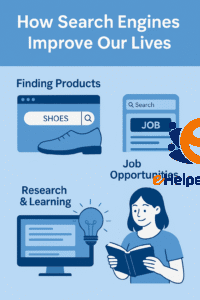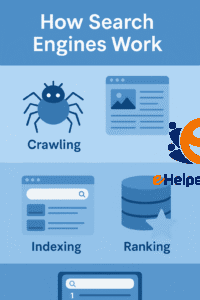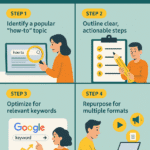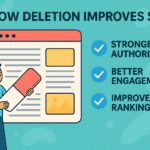Search engines importance and how do people use it?
In the modern digital ecosystem, search engines are the foundation of how people access and consume information. Whether someone is looking for academic research, a new gadget, or directions to the nearest café, search engines serve as the gateway to knowledge and decision-making.
By 2025, the rise of Artificial Intelligence (AI), voice search, and predictive technology has changed how users interact with these platforms. Instead of simply finding websites, search engines now act as personalized guides, anticipating user needs and offering real-time, context-driven answers.
This article explores why search engines remain indispensable, how people use them daily, and the technological and social shifts shaping their evolution.

The Role of Search Engines in Everyday Life
Search engines touch nearly every aspect of modern living:
Quick Answers: From “What time is it in Tokyo?” to “How many calories are in an avocado?”, search engines provide instant knowledge.
Navigation & Travel: Google Maps integration means users can search for “best hotels near me” and get real-time booking options.
Health & Lifestyle: Increasingly, people search for medical symptoms or nutrition advice online before consulting a professional.
Shopping Decisions: Before making purchases, users read reviews, compare prices, and watch demos—all facilitated by search engines.
An example is the way resources like SEO basics for beginners in 2025 simplify complex digital topics, making knowledge accessible for everyone.
Search Engines and Business Visibility
For businesses, ranking well in search results is no longer optional—it’s survival. Over 90% of clicks happen on the first page, so visibility directly impacts profitability.
How businesses benefit:
Brand Visibility: Being ranked high builds credibility and customer trust.
E-Commerce Growth: Customers rely on engines to find and review products before buying.
Global Reach: Even small businesses can attract international customers with proper optimization.
A key part of success is adopting practices explained in guides like Off-Page SEO: Effective Strategies, which teach businesses how to earn trust through backlinks and authority-building.
Search Engines as Tools for Learning and Research
Education has been transformed thanks to search engines. Students, researchers, and professionals all benefit from immediate access to knowledge.
Students: They use search engines to find tutorials, articles, and academic papers instead of relying solely on textbooks.
Researchers: They search for up-to-date publications, conferences, and data.
Everyday Learners: Even casual users turn to engines to learn skills like coding, cooking, or DIY projects.
For example, guides such as What is Google Panda? help people understand how search engines evaluate content, which is essential for creating accurate and reliable information.
This democratization of knowledge shows why search engines are now central to modern education.
Search Engines and Digital Marketing
No digital marketing campaign is complete without search engines. They serve as both discovery tools for consumers and distribution platforms for businesses.
Key roles in marketing:
Keyword Targeting: Businesses craft content around what users search. See Optimal Keyword Usage.
Trend Tracking: Marketers analyze real-time queries with Google Trends insights.
Voice Search Optimization: Content is tailored for conversational phrases like “best coffee shop near me.”
Paid Ads: Companies pay to appear above organic results, securing instant attention.
Marketers who adapt to these shifts benefit from deeper connections with audiences, while those who ignore them risk being invisible.
Technological Advances Shaping Search Engines
Technology has revolutionized search engines in 2025:
AI Personalization: Results now adapt to individual users based on history, behavior, and intent.
Visual & Video Search: Users can upload images to find similar products instantly.
Predictive Search: Engines suggest answers before queries are finished.
Mobile-First Indexing: Websites not optimized for mobile lose rankings.
For professionals, resources like Competitive SEO Factors in 2025 outline how these technologies impact website rankings and competitiveness.
These innovations highlight why search engines are not static—they continuously evolve with human behavior.
Challenges and Future of Search Engines
While powerful, search engines face challenges:
Misinformation: Despite algorithm updates, low-quality content persists.
Privacy Concerns: Users are increasingly cautious about how their data is tracked and stored.
Over-Saturation: With billions of pages competing, standing out is harder than ever.
Future directions:
AI-driven Assistants: Integration with Siri, Alexa, and Google Assistant will deepen.
AR/VR Search: Visualizing products in real-world spaces will become possible.
Blockchain-based Search: Decentralized engines may ensure more transparent and fair search results.
These trends suggest that search engines will become even more embedded in daily life, guiding how we learn, shop, and communicate.
The Connection Between Search and Social Media
By 2025, the boundaries between search platforms and social media have blurred. People no longer rely solely on traditional engines to discover content—social platforms like TikTok, Instagram, and LinkedIn are becoming “secondary search tools.”
Content Discovery: Many users now type queries directly into social media search bars, especially for product reviews and lifestyle inspiration.
Community Engagement: Social platforms often appear in search results, bridging the gap between information and conversation.
Trust Factor: Peer reviews, comments, and influencer content discovered through social searches influence decision-making more strongly than corporate websites.
This hybrid use of platforms shows how search is expanding beyond simple indexing into a web of human interaction.
Search in Crisis Management and Public Safety
During emergencies, search becomes more than a convenience—it becomes a lifeline.
Natural Disasters: Real-time updates on safe zones, shelters, and weather alerts are delivered instantly.
Health Crises: During pandemics or outbreaks, people rely on digital resources to understand symptoms, prevention methods, and official guidelines.
Public Safety Alerts: Law enforcement and governments use search to push urgent announcements, ensuring that information spreads faster than misinformation.
The ability to access trusted guidance in seconds highlights the role of search as a global safety net.
Personalization vs. Filter Bubbles
One of the most debated aspects of modern search is personalization. While tailored results improve relevance, they also create what experts call filter bubbles.
Personalization Benefits: Saves time, improves accuracy, and delivers answers aligned with user needs.
Risks of Narrowing Perspectives: Over-customization may prevent exposure to diverse viewpoints, limiting critical thinking.
Ethical Balance: Platforms must walk a fine line between convenience and diversity of information.
This tension reflects the broader challenge of ensuring that search remains both useful and intellectually open.

Frequently Asked Questions (FAQs)
1. Why are search engines important in 2025?
Search engines are important because they connect people with accurate and real-time information. In 2025, they have become smarter with AI, offering personalized results that help with education, business, shopping, and decision-making.
2. How do people use search engines in daily life?
People use search engines for quick answers, navigation, product reviews, health information, and entertainment. Voice search and mobile devices make it easier to interact with engines naturally.
3. What are the main benefits of search engines for businesses?
Businesses benefit from visibility, credibility, and global reach. Appearing on the first page of Google builds trust and drives traffic, especially for e-commerce companies relying on product searches.
4. How do search engines impact education and research?
Search engines democratize learning by providing instant access to tutorials, scholarly articles, and expert insights. Students and professionals can stay updated with resources like SEO basics for beginners in 2025.
5. What role do search engines play in digital marketing?
They are the backbone of digital marketing, Companies use them for keyword optimization, paid ads, trend analysis, and voice search campaigns. Guides like Optimal Keyword Usage show how marketers align strategies with search behavior.
6. What is the future of search engines?
The future includes deeper integration with AI assistants, AR/VR searches, and blockchain-based engines for greater transparency. Personalized, predictive, and interactive search experiences will dominate the next decade.
Conclusion
remain the digital compass of modern society. They shape how individuals access knowledge, how businesses reach customers, and how marketers connect with audiences. By 2025, advancements in AI, predictive algorithms, and mobile-first indexing have only deepened their significance.
The lesson is clear: adapting to search engine evolution is no longer optional. Whether you are a student, entrepreneur, or global brand, your ability to thrive depends on how well you understand and leverage search engines.
read also: Backlinks Advantages and Disadvantages: Powerful SEO Insights for 2025





